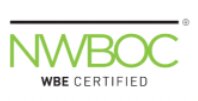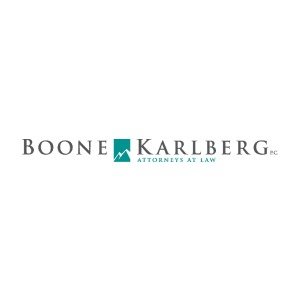Best Credit Repair Lawyers in United States
Share your needs with us, get contacted by law firms.
Free. Takes 2 min.
Or refine your search by selecting a city:
List of the best lawyers in United States
About Credit Repair Law in United States
Credit repair in the United States involves the process of addressing and rectifying negative or inaccurate information on your credit report. This can include disputing errors, negotiating with creditors to remove negative entries, or even working to consolidate debts. The process is governed by the Fair Credit Reporting Act (FCRA), which defines the rights of consumers to ensure the accuracy and privacy of information on their credit reports. Various credit repair organizations offer services to assist consumers in improving their credit scores, but it is essential to know that individuals have the right to dispute errors on their own.
Why You May Need a Lawyer
Individuals may seek legal assistance in credit repair for several reasons. Common situations include:
- Inaccurate or fraudulent information on a credit report that the credit bureaus refuse to correct.
- Difficulty in negotiating with creditors to amend misleading or outdated information.
- A need for guidance through the complexities of credit reporting laws and regulations.
- Experiencing identity theft resulting in unauthorized transactions or accounts.
- Issues with credit repair companies that may engage in fraudulent or non-complaint practices.
Local Laws Overview
While the FCRA is a federal law, each state may have additional laws and protections concerning credit repair. Key aspects that can vary include:
- Limits on fees that credit repair organizations can charge.
- Mandatory cancellation periods or cooling-off periods after signing a contract with a credit repair service.
- Specific state consumer protection statutes that provide additional recourse against fraudulent credit repair practices.
- Requirements for licensing or registration of credit repair organizations within the state.
Frequently Asked Questions
What is credit repair?
Credit repair is the process of correcting or removing inaccurate information from your credit report, which can improve your credit score.
Can I repair my credit by myself?
Yes, individuals can dispute inaccurate information on their credit report by themselves without any cost using the dispute resolution process provided by credit bureaus.
What does a credit repair organization do?
A credit repair organization typically handles disputes, negotiates with creditors, and may offer counseling on improving credit usage.
How long does credit repair take?
The timeline can vary. Disputes typically take 30 days to be reviewed, but the overall process may take several months depending on the complexity of issues and cooperation of creditors.
Is credit repair lawful?
Yes, credit repair is legal as long as it complies with the Fair Credit Reporting Act and other relevant regulations.
How much do credit repair services cost?
Costs vary and can range from a flat fee to monthly service payments. It's important to review and understand all fees before signing up for services.
What should I look for in a credit repair lawyer?
When seeking a credit repair lawyer, look for a licensed attorney with experience in consumer protection or financial law, especially with a focus on credit issues.
What rights do I have under the Fair Credit Reporting Act?
Under the FCRA, you have the right to dispute incorrect information, obtain a free credit report annually, and expect corrected errors to be updated promptly.
Can negative information be legally removed from a credit report?
Accurate negative information cannot be removed legally before the time limit expires. However, inaccurate or unverifiable information can be disputed and potentially removed.
What should I do if I suspect credit repair fraud?
If you suspect fraud, you should report it to the Federal Trade Commission (FTC), contact your state’s consumer protection office, and consider consulting with a consumer protection attorney.
Additional Resources
Here are some resources that can be helpful for someone seeking legal advice on credit repair:
- Federal Trade Commission (FTC) - Information on credit and debt.
- Consumer Financial Protection Bureau (CFPB) - Resources and complaint filing systems.
- National Foundation for Credit Counseling (NFCC) - Provides access to accredited credit counseling.
- Legal Aid Societies - Offer free or discounted legal services for those who qualify.
- American Bar Association - Find a lawyer or legal advice in your area.
Next Steps
If you're considering seeking legal assistance with credit repair, it's essential to gather all pertinent information related to your credit report and errors you believe exist. Document your communications with credit bureaus and creditors, and consider consulting with a consumer protection attorney to understand your options. Schedule consultations with potential legal representatives to discuss your case, their experience with similar issues, and to learn about potential costs. Always verify the credentials and licensure of any attorney or credit repair service before proceeding.
Lawzana helps you find the best lawyers and law firms in United States through a curated and pre-screened list of qualified legal professionals. Our platform offers rankings and detailed profiles of attorneys and law firms, allowing you to compare based on practice areas, including Credit Repair, experience, and client feedback.
Each profile includes a description of the firm's areas of practice, client reviews, team members and partners, year of establishment, spoken languages, office locations, contact information, social media presence, and any published articles or resources. Most firms on our platform speak English and are experienced in both local and international legal matters.
Get a quote from top-rated law firms in United States — quickly, securely, and without unnecessary hassle.
Disclaimer:
The information provided on this page is for general informational purposes only and does not constitute legal advice. While we strive to ensure the accuracy and relevance of the content, legal information may change over time, and interpretations of the law can vary. You should always consult with a qualified legal professional for advice specific to your situation.
We disclaim all liability for actions taken or not taken based on the content of this page. If you believe any information is incorrect or outdated, please contact us, and we will review and update it where appropriate.
Browse credit repair law firms by state in United States
Refine your search by selecting a state.
















